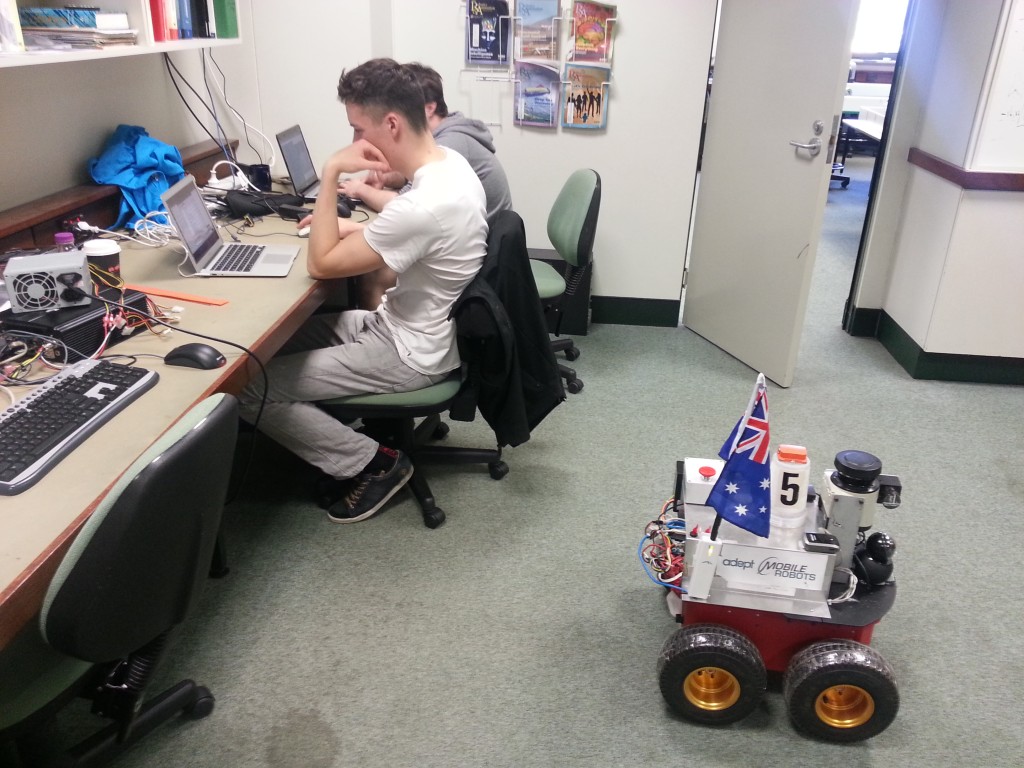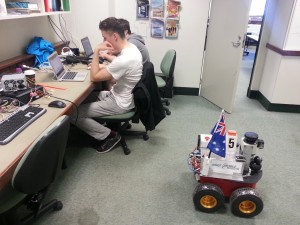
Robohub.org
The Wambots Team with Thomas Bräunl


In today’s episode, we speak with Thomas Bräunl from the University of Western Australia about the MAGIC 2010 Challenge, the Wambot team and work done at the Robotics & Automation Lab.
Thomas Bräunl
Thomas Bräunl is Professor at the University of Western Australia and leader of the Robotics & Automation Lab. He tells us about the first MAGIC Challenge (Multi Autonomous Ground-Robotics International Challenge) that took place in 2010 in Adelaide, South Australia. MAGIC is a 1.6 million dollar prize competition for autonomous mobile robots funded by the primary research organizations for Tank and Defense research in the USA and Australia-TARDEC and DSTO. The goal of the competition is to create multi-robot teams that can execute an intelligence, surveillance and reconnaissance mission in a dynamic urban environment. Tasks include mapping a 500 m x 500 m area in under 3.5 hours and identifying targets of interest. Bräunl tells us what it takes to make a robot for your first participation in a robotics competition, lessons learned from their 4th place and other work done in the lab on underwater robotics and the “not so Grand Challenge”.
Calum Meiklejohn
Calum is a mechatronics student working towards his final year project. He tells us about his work on the new UWA Wambot robot including an upgrade in software that now uses ROS (Robot Operating System) to coordinate sensors for SLAM (Simultaneous localization and Mapping). Their final aim is to have a swarm of these cooperate to build maps of an environment.
Links:
- Download mp3 (17.6MB)
- Subscribe to Robots using iTunes
- Subscribe to Robots using RSS
- Thomas Bräunl’s Homepage
- MAGIC Competition
tags: competition, podcast





